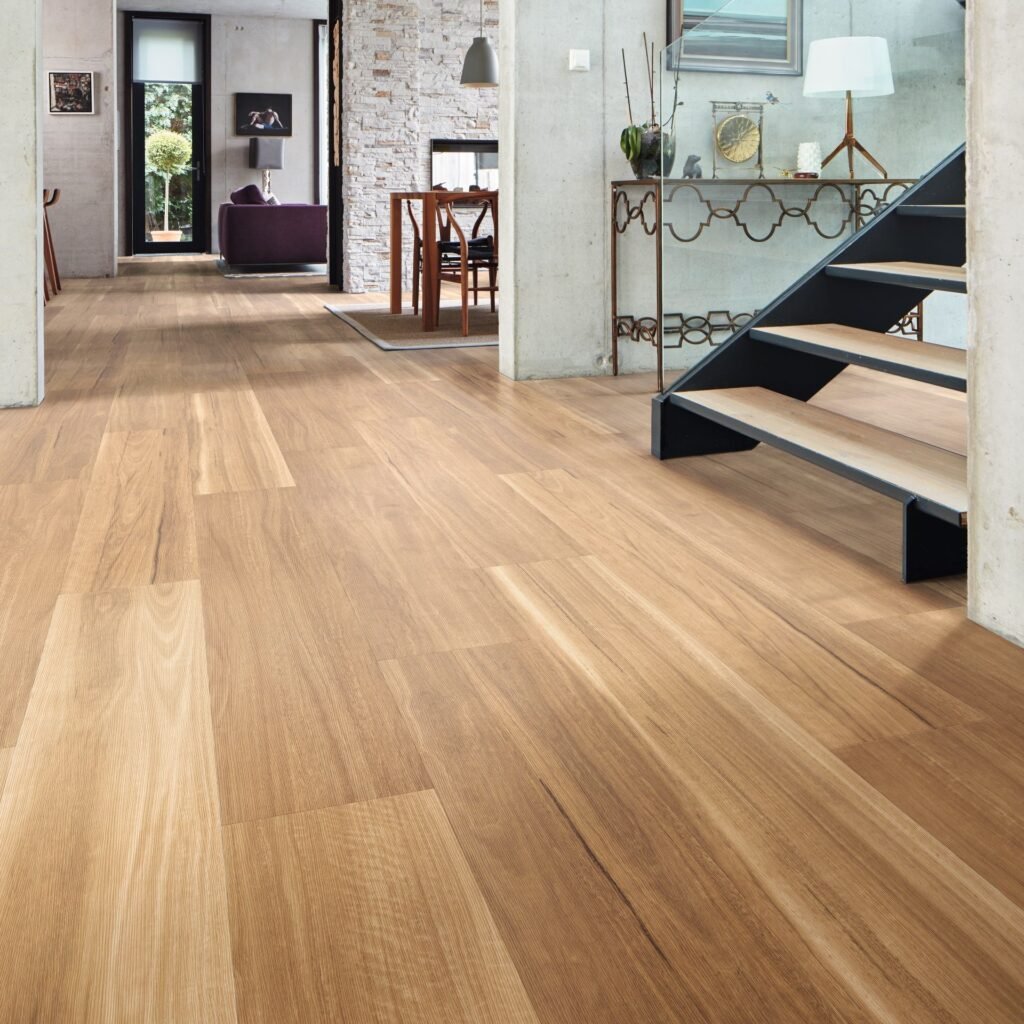Different from other types of flooring. Vinyl planks have no joints. The boards are installed by glueing-down to the floor next to each other. It’s a practical and affordable flooring alternative that gives the appearance of hardwood flooring.

Durability
While considerably durable, vinyl plank is not as durable as some other types of flooring, such as hardwood or tile.
How long will vinyl plank flooring last? It depends on the quality of the product itself, the quality of the installation, and its maintenance. On average, vinyl plank flooring lasts around 10-20 years.
Wear and Tear
High-quality vinyl plank flooring has exceptional durability and resilience to wear and tear. But like any other flooring option, it is susceptible to wear and tear from foot traffic over time. The surface of the planks may become dull or scratched if they are not properly maintained or protected from heavy objects being dragged across them.
Scratches and Dents
Vinyl planks are generally more resistant to scratches than other types of floors like laminate or wood, but they still have their limits when it comes to resisting deep scratches caused by pets’ claws or sharp objects dropped on them.
Also, dents can form in areas where heavy furniture has been placed for extended periods of time, causing an uneven surface texture on your vinyl planks which could be difficult to repair without replacing them entirely.
Water Damage
Vinyl planks are water resistant and some are even considered waterproof. They can withstand water and other spills for a certain period. However, standing water can still seep through and damage the glue and the subfloor so it necessary to wipe the spills right away. If you live in a flooding-prone area, you should consider installing waterproof underlay to prevent potential water damage down the line.
Resistance to Fading
Vinyl planks are designed to resist fading but be aware that they may fade over time if they are installed in areas exposed to full strong sunlight.
Maintenance
In order to keep your vinyl plank floor looking its best, it’s important to understand the necessary cleaning methods, repairs, and replacement options.
Cleaning and Care: Vinyl plank flooring should be vacuumed or swept regularly in order to remove dirt and debris that can scratch or dull the surface of the planks. It’s also important to use a damp mop on occasion in order to clean up spills quickly before they have time to set into the material. For tougher stains, you may need a mild detergent solution specifically designed for vinyl floors. Avoid using harsh chemicals as these can damage the finish of your planks over time.
Appearance
Vinyl planks come in a wide variety of incredibly life-like finishes allowing you the look and feel of luxury at a fraction of the price.
